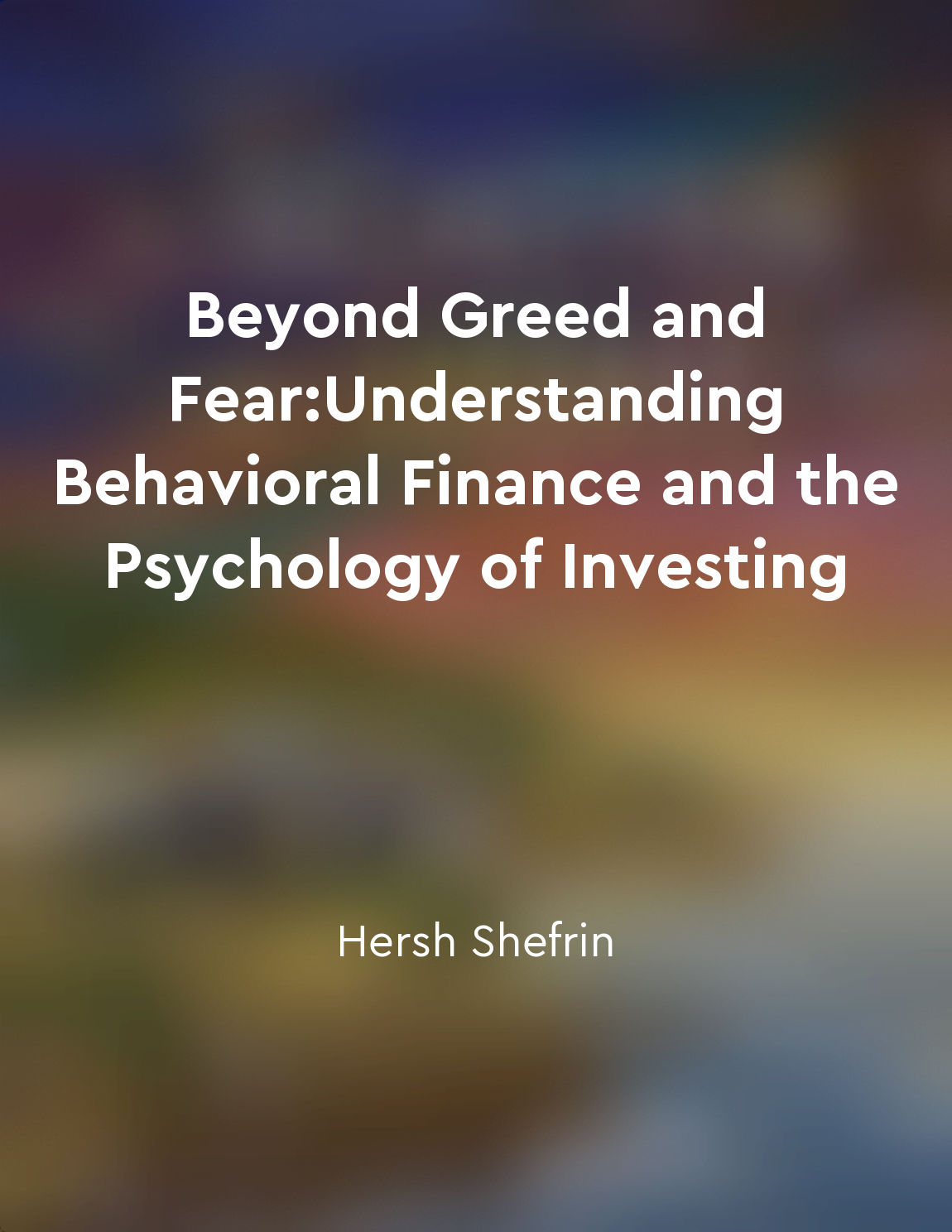Integrating behavioral finance principles can lead to better investment outcomes from "summary" of Beyond Greed and Fear:Understanding Behavioral Finance and the Psychology of Investing by Hersh Shefrin
By incorporating behavioral finance principles into investment decision-making, individuals can potentially enhance their investment outcomes. Understanding how human psychology influences financial choices can provide investors with valuable insights that traditional finance theories may overlook. Behavioral finance recognizes that investors are not always rational actors, as assumed by classical finance models. Instead, individuals are prone to cognitive biases and emotional responses that can impact their investment decisions. One key concept in behavioral finance is the idea of mental accounting, where individuals compartmentalize their money into different mental "accounts" based on various factors such as source, purpose, or time frame. This can lead to suboptimal decision-making, as people may make choices that are inconsistent with their overall financial goals. By recognizing and addressing these mental accounting biases, investors can make more informed and rational investment decisions. Another important principle in behavioral finance is the concept of loss aversion, which suggests that individuals feel the pain of losses more intensely than the pleasure of gains. This asymmetry in emotional responses can lead to risk-averse behavior and a reluctance to sell losing investments, even when it may be the rational choice. By being aware of this bias, investors can better manage their portfolios and avoid making decisions based on emotional reactions rather than sound financial reasoning. Additionally, behavioral finance highlights the impact of social influences on investor behavior, such as herd mentality and overconfidence. Individuals may be influenced by the actions of others or exhibit overconfidence in their own abilities, leading to suboptimal investment decisions. By understanding these social dynamics, investors can guard against following the crowd or overestimating their own skills, thereby improving their investment outcomes. Incorporating behavioral finance principles into investment strategies can help individuals overcome common psychological biases and make more rational decisions. By acknowledging the role that emotions, cognitive biases, and social influences play in financial choices, investors can build more robust portfolios and achieve better long-term results. By combining traditional financial analysis with insights from behavioral finance, individuals can create a more holistic approach to investing that takes into account both the rational and irrational aspects of human behavior.Similar Posts
Avoid the lure of hot investment trends and stick to a proven, consistent strategy
As investors, we are constantly bombarded with the latest hot investment trends and strategies that promise quick and impressiv...
Use technical analysis tools for better insights
Technical analysis tools are essential for gaining a better understanding of stock market trends and making informed investment...

Irrational exuberance drives asset prices
The idea that irrational exuberance drives asset prices is a notion that has been observed throughout history. It is a concept ...
Investors must understand the industries in which they invest
Understanding the industries in which one invests is a critical aspect of successful investing. Merger Masters emphasizes the i...

Diversification minimizes risk
Diversification is a fundamental concept in finance that is designed to spread risk across a variety of assets within an invest...
You have to adapt to survive
The idea that adaptation is essential for survival is ingrained in the very fabric of life itself. From the earliest single-cel...
Diversify your investments
The idea of spreading your money across different types of investments is a basic concept that is central to successful investi...
Success in investing requires patience
Many people think that investing success is all about finding the next hot stock or predicting the next big market move. They b...

Seek opportunities for growth
One of the most important things that you can do in life is to always be on the lookout for opportunities to grow. Growth is es...
Risk management is a key component of a successful investment strategy
Successful investing is not just about making money; it's also about protecting what you have earned. In the world of finance, ...

